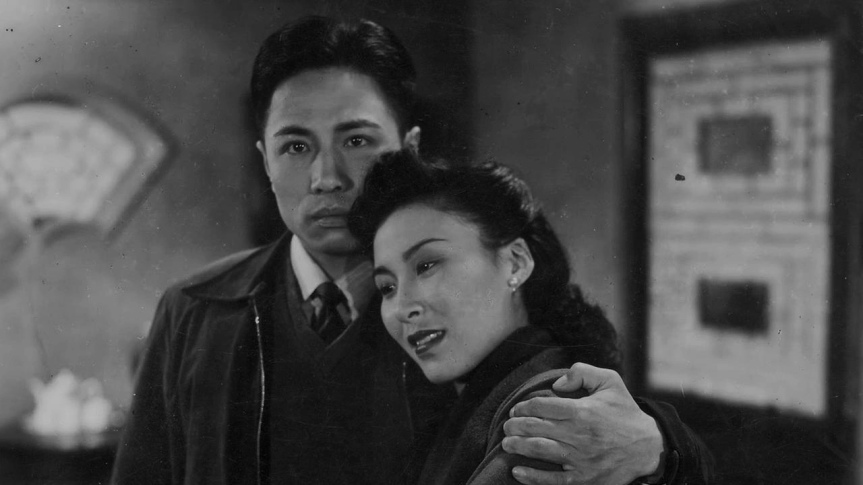The Big Continent: Asian Cinema Challenge
Week 2: Best Chinese Motion Pictures [Film 1 of 2]
For this week’s installment of The Big Continent: Asian Cinema Challenge, challengers are tasked to select, view, and critique films from the list of Best Chinese Motion Pictures. Without hesitation, I chose the top-ranked entry, a film from pre-Maoist era China by the rediscovered Chinese master filmmaker, Fei Mu. I intend to critique one or more films from this list over the course of the week. This marks the first of two films that I’ll be reviewing.
Spring in a Small Town (dir. Fei Mu, prod. Wenhua Film Company, China, 1948) – ****½ – I must confess, I’ve watched Spring in a Small Town several times before, yet it failed to leave a lasting impression of significance. Initially, I found it overly melodramatic. It wasn’t until I viewed Fei Mu’s Blood on Wolf Mountain (1936) that I began to grasp the director’s intent. Fei Mu proves to be more than a technician; he utilizes the expressive power of cinematic space to delve into themes of history, society, and community.
On the outset, Spring in a Small Town uses space to explore erotic tension and, more profoundly, to stage an erotically charged yet non-sexual drama concerning the complexities of a love triangle. The narrative revolves around a husband, Liyan, and his wife, Yuwen, who are visited by a mutual friend, Zhang Zhichen, Yuwen’s former lover from their teenage years. Throughout Zhichen’s visit, Yuwen attempts to seduce him, drawing him closer, yet Fei Mu portrays these interactions with a restrained elegance reminiscent of another brilliant Chinese-language film Wong Kar-Wai’s In the Mood for Love (2000). Meanwhile, Liyan’s sixteen-year-old sister harbors affections for Zhichen, prompting Liyan to ponder the prospect of his sister marrying his best friend.
Fei Mu’s chosen setting is a dilapidated house situated in a small town ravaged by the Sino-Japanese War. Contrasted with Blood on Wolf Mountain (1936), where Fei Mu vehemently expresses his disdain for Japanese invaders, Spring in a Small Town adopts a more nuanced approach, using the ruins of the physical landscape to recontextualize the melodrama as an exploration of the past.
For Fei Mu, memory permeates the present, unsettling its presumed stability. When Zhang Zhichen visits, Yuwen’s complex feeling about the past lover and her present husband disentangle. Such an untangling transplant memory as material history, the past intervening in the present for the future.
The film delineates two pivotal historical moments: the disruption caused by Zhichen’s arrival, which upends the characters’ daily routines, and Liyan’s near-death experience, which prompts Yuwen to rekindle her connection with him, compelling Zhichen to depart. These two moments reactivates first nostalgia as a form of desiring-production, and secondly, the historical fidelity towards change. Somehow, Yuwen’s return to Liyan sublates the potential to desire to overtake tradition. Yuwen emerges as the most changed, as if saying that the spring is truly finally here.
Much like Fei Mu’s other works, the female characters drive the narrative forward. They constitute the force of change. In Blood on Wolf Mountain, a young village girl urges her fellow villagers to confront the wolves; similarly, in Spring in a Small Town, Yuwen symbolizes the season itself, transitioning from the “winter” of her marriage with Liyan to the blossoming “spring” of their renewed connection, despite the harsh realities they face. She truly embodies the essence of this cinematic masterpiece.
###


2 thoughts on “Film Review: Spring in a Small Town (1948)”